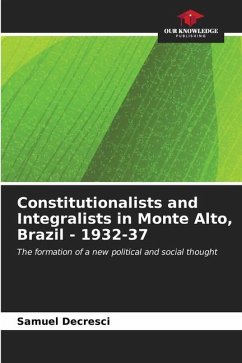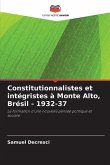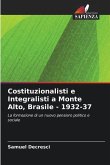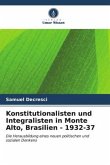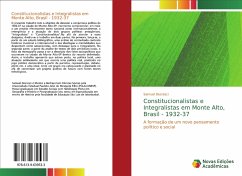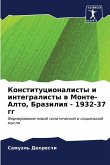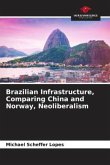The aim of this work is to unveil the political situation of 1932-37 in the city of Monte Alto-SP; in particular to understand, in the midst of an effervescent scenario both nationally and internationally, the emergence and actions of two antagonistic political groups, the "Integralists" and the "Constitutionalists." In order to fulfil these aims, the work was divided into two parts. The first part analyses the troubled historical context (national and international) and the ideologies and mentalities that emerged as salvationist, with Integralism standing out. In the second part, based on an analysis of texts from two local periodicals, the focus of the monograph becomes a description of the socio-political events that took place in the city of Monte Alto-SP within the delimited section. Thus, the work shows that local politics had an ambivalent situation in which real politics took place, practised in the democratic political game based on parties, representation, debate, elections, etc. and an ideal one, in which a group was catechised and moulded in an effort to realise a political project for the future with strong teleological overtones.

